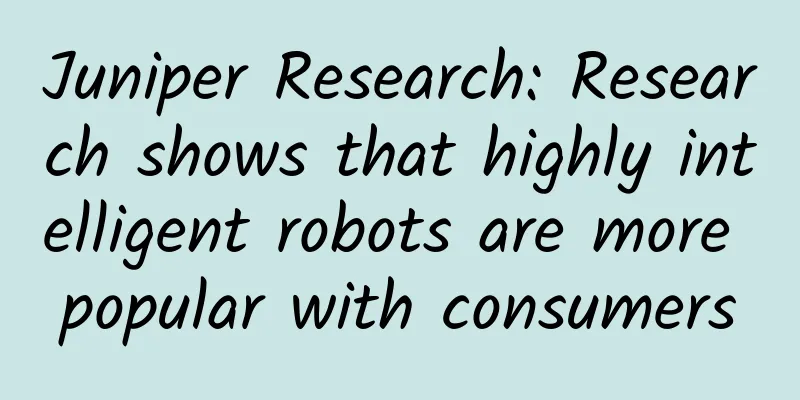Juniper Research: Research shows that highly intelligent robots are more popular with consumers

|
According to data from Juniper Research, a British market research organization, one in 25 American households currently owns a robot, and it is expected that by 2020, one in 10 American households will own a robot. The report said that warnings that robots will eventually destroy humans may just be a plot in science fiction. The reality is that more and more machines are starting to do the work done by humans. It is expected that within four years, many American families will have their own robots. Juniper Research makes it clear that robots do not necessarily have to have humanoid appearance, but rather have capabilities that are more suitable for completing specific tasks. The research company also defines its robots as "autonomous, mobile electromechanical machines that are programmable and reprogrammable for domestic or non-commercial use. It can sense and respond to its environment to some extent." Juniper Research says robots will "open up a whole new era of housework" with products like the Roomba, a disc-shaped vacuum cleaner, and Sprinkler, a garden watering robot developed by Droplet Robotics. However, many companies are reportedly still developing humanoid robots that can interact with people. Pepper, a humanoid robot from SoftBank, Japan's largest software seller, is one of the most popular, but Juniper Research said the technology has not yet reached maturity. Juniper Research said: "Despite the improvement in the performance of complex robots like SoftBank's Pepper, there are significant limitations to current technology. Therefore, to meet consumer expectations, we need more intelligent and perceptive robots." Research by Bank of America Merrill Lynch shows that robotics may evolve into a large industry with a total value of $153 billion by 2020. However, as the robotics industry develops, warnings have been issued from all walks of life, such as Tesla Motors boss Elon Musk and physicist Stephen Hawking, who have warned that artificial intelligence may cause harm. |
<<: Where will Google take us?
>>: Analysis of the real status quo of domestic Internet parking development
Recommend
Will Neisseria meningitidis definitely cause meningitis?
Recently, the news that two junior high school st...
Tmall President Wang Yulei: E-commerce in the future must return to consumer experience
We have just launched a plan to upgrade the consu...
Expert from the Ministry of Public Security: Fingerprint leakage in short videos is more severe than the "V gesture"
Yesterday, Japanese media published a report sayi...
Third-party login
Source code introduction: Because it involves the...
Be careful with this heating device! In addition to burns and fire, it will also cause formaldehyde to exceed the standard
Your home heater may be a hidden "killer&quo...
How much does it cost to invest in the Yili Kazakh Express mini program?
How much does it cost to invest in the Ili Kazakh...
A brief discussion on RabbitMQ's delay queue
Part 01. What is a delay queue? Delay queues repr...
What qualifications are required for the Maoming knowledge payment mini program? What are the features?
WeChat, as the largest traffic portal on mobile t...
Information flow effect is not good? Maybe you didn’t do a good job of business analysis丨Attached is the latest case study
An experienced pitcher may know how to package th...
A new era of content distribution! Is Robin Li also here to “teach” everyone how to do operations?
A few days ago, Li Yanhong, one of the leading fi...
Complete disintegration of body functions, how dangerous is critical testing? Why is there no cure for radiation damage?
There is no need to say much about the power of t...
Justill 2021 AI Commercial Illustration Practical Training Camp Basics
: : : : : : : : : : : : : : :...
Scientific and technological equipment broadens the way for emergency rescue of hazardous chemicals
...
What are the promotion strategies for Baidu's mobile bidding? Things to note when promoting on mobile devices!
Detail 1: Target customers search at different ti...









